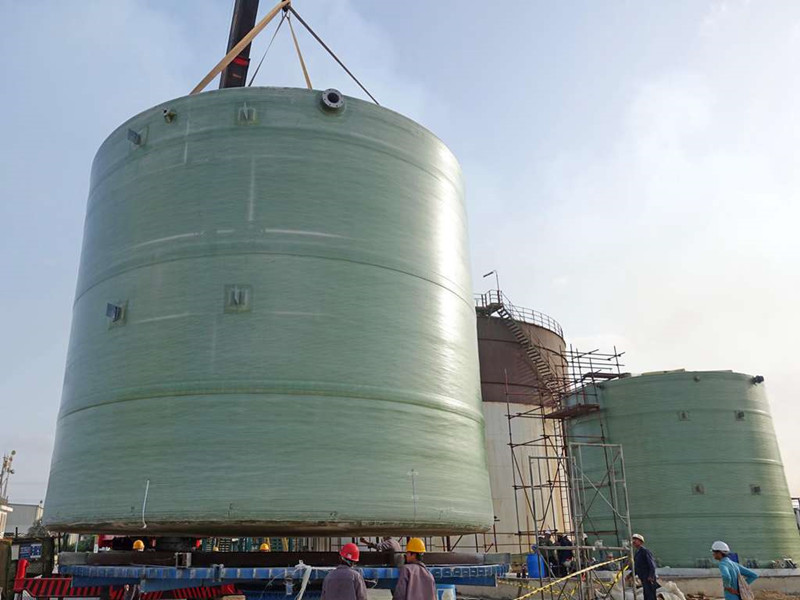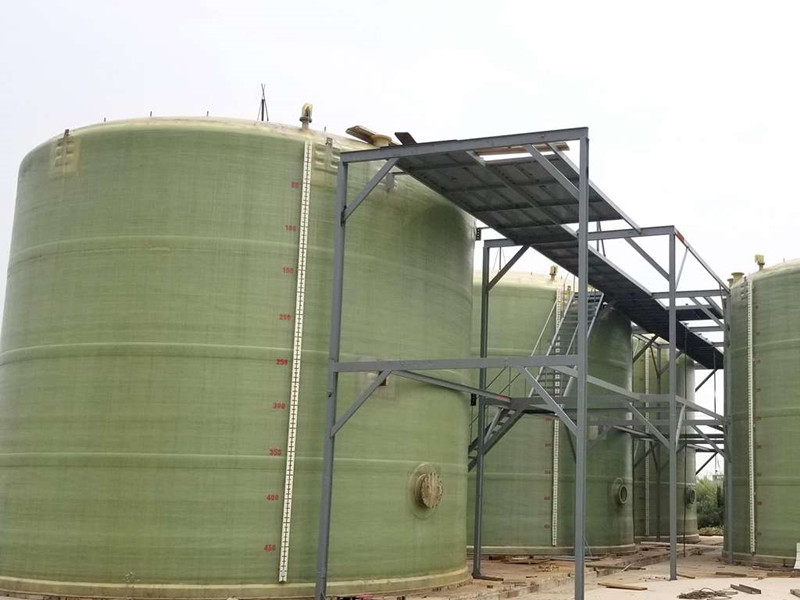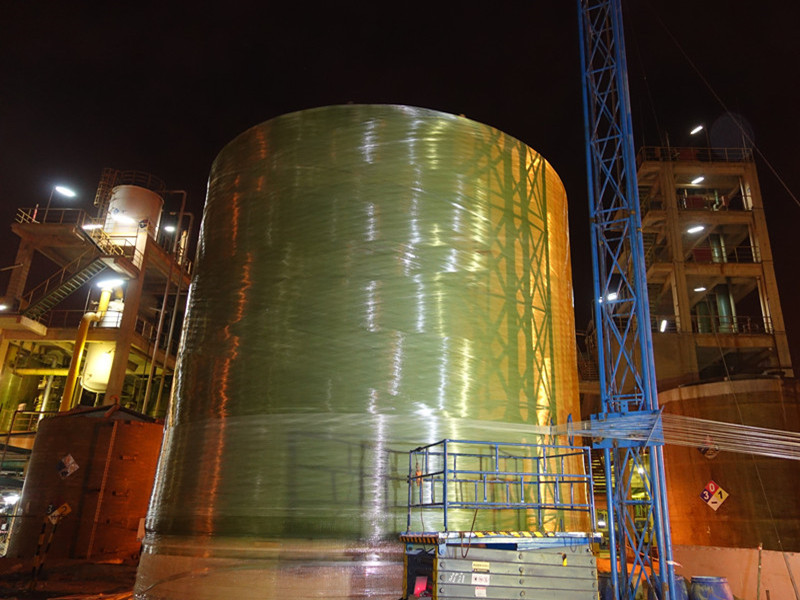Large Size Field Tanks-Jrain|Industrial Storage Solutions&Customized FRP Systems
Large size field tanks have become a cornerstone in modern industrial infrastructure, offering scalable and adaptable storage solutions for corrosive and abrasive substances. These tanks, manufactured using fiberglass-reinforced polymer (FRP) technology, are designed to overcome logistical challenges associated with transporting oversized equipment. Companies like Jrain have pioneered mobile manufacturing systems that enable on-site production, ensuring precision, durability, and cost-efficiency. This article explores the technical specifications, advantages, applications, and company background of these tanks, supported by authoritative references and industry standards.
Product Overview: Field Manufacturing of Fiberglass Tanks
The process of manufacturing large size field tanks involves a series of meticulous steps to ensure structural integrity and compliance with industry standards. According to the Jrain product page, the typical workflow includes:
- Project Mobilization: Assembling a dedicated team and appointing a project manager to oversee logistics, including shipping machinery and materials to the field site.
- Equipment Setup: Installing customized winding machines and molds tailored to the tank's diameter, ensuring alignment with design specifications.
- Material Application: Creating a liner and performing filament winding using selected resins and fiberglass to meet the tank's service requirements.
- Final Assembly: Demoulding the tank, positioning it on-site, and installing fittings such as nozzles, ladders, and handrails. A hydrostatic test is conducted to validate performance before handover.
Jrain emphasizes that the mechanical properties of field-wound laminates are equivalent to those produced in controlled workshop environments, ensuring reliability even in harsh conditions.



Technical Specifications and Customization
The technical specifications of large size field tanks are tailored to meet diverse industrial needs. Key parameters include:
| Parameter | Details |
|---|---|
| Size Range | DN4500mm – DN25000mm |
| Material Composition | Customizable resins (e.g., epoxy, vinyl ester) and fiberglass types |
| Standards Compliance | ASME RTP-1, ASTM D3299, ASTM D4097, BS EN 13121 |
| Surface Finish | Smooth, corrosion-resistant lining for abrasive or corrosive media |
| Installation Flexibility | On-site assembly reduces transportation costs and logistical hurdles |
Jrain leverages its expertise in field fabrication to adapt to varying environmental conditions, from arid deserts to coastal regions. The company’s ability to select specialized agents and fillers ensures tanks can withstand extreme temperatures, chemical exposure, and mechanical stress.
Advantages of Field Manufacturing
Field manufacturing of large size FRP tanks offers several distinct advantages over traditional off-site production:
- Cost-Effectiveness: Reducing transportation costs by producing tanks at the installation site.
- Size Flexibility: Overcoming limitations of oversized equipment that cannot be transported via conventional means.
- Time Efficiency: Coordinating with on-site contractors to streamline project timelines.
- Customization: Tailoring tank designs to specific operational requirements and environmental factors.
According to NIST (National Institute of Standards and Technology), field manufacturing can enhance project adaptability while maintaining rigorous quality control. This aligns with ASME RTP-1 standards, which emphasize the importance of process validation and material testing in FRP production.
Applications in Industrial and Environmental Sectors
Large size field tanks are widely used across industries requiring robust storage solutions for corrosive liquids and gases. Key applications include:
- Chemical Processing: Storing acids, solvents, and other aggressive chemicals in facilities where corrosion resistance is critical.
- Water and Wastewater Treatment: Constructing large-scale tanks for sewage treatment, desalination, and water storage.
- Oil and Gas: Housing fuel and chemical storage systems in remote or challenging environments.
- Mining: Managing abrasive slurries and mineral processing fluids in harsh conditions.
Jrain has extensive experience in executing projects in China and overseas, demonstrating its capability to adapt to diverse regulatory and environmental frameworks. The company’s on-site training programs ensure customers can operate and maintain the equipment effectively.
Company Background: Hengshui Jirun FRP Co., Ltd.
Hengshui Jirun FRP Co., Ltd. (衡水嘉润玻璃钢有限公司), based in Jizhou District, Hengshui, Hebei, China, is a leading manufacturer of fiberglass tanks and vessels. The company specializes in field-wound FRP systems, combining advanced engineering with practical on-site solutions. With a focus on customization and quality, Jrain has established itself as a trusted partner for industrial clients worldwide.
For more information about the company’s capabilities, visit the Jrain website.
Conclusion: The Future of Industrial Storage
The evolution of field manufacturing has revolutionized the way large size FRP tanks are produced and deployed. By leveraging mobile winding machines, customizable materials, and rigorous standards compliance, companies like Jrain are setting new benchmarks in industrial storage solutions. As industries continue to demand scalable, durable, and cost-effective systems, the role of field-wound fiberglass tanks will only grow in importance.
References
National Institute of Standards and Technology (NIST) provides critical standards and research on materials and manufacturing processes, including guidelines for fiberglass-reinforced polymer (FRP) systems. These references underscore the importance of process validation, material testing, and compliance in industrial applications.
Additional standards such as ASME RTP-1 and ASTM D3299 are essential for ensuring the safety and performance of FRP tanks in demanding environments.
Latest news
-
Drill Rod Connections Understanding the Basics and Its Global SignificanceNewsNov.24,2025
-
Rectangular Tank Made of Fiberglass Material – Durable, Cost-Effective Liquid Storage SolutionsNewsNov.24,2025
-
Hollow Drill Rods for Efficient Drilling Operations in the Field | Durable, Lightweight & CustomNewsNov.23,2025
-
Powerful yt27 Rock Drill for Tough Mining Surfaces | Durable & PortableNewsNov.23,2025
-
Why the Reversible Drill Bit Is a Versatile Tool for All Your Drilling NeedsNewsNov.22,2025
-
Fiberglass Food Grade Equipment: Key Features, Benefits & Global ImpactNewsNov.22,2025











